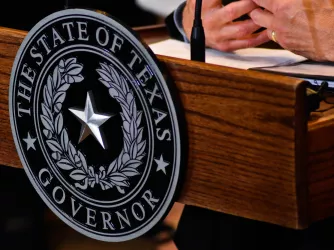Table of Contents
Victory in Tennessee: Bill Banning Outside Speakers Is Abandoned

News reports today indicate that Tennessee State Senator Stacey Campfield is abandoning his legislation which, if passed, would have barred public colleges and universities in Tennessee from spending any money (including student activity fees) to bring visiting speakers to campus unless they were speaking to classroom as part of the curriculum. By now, Torch readers are familiar with the controversy.
SB 2493 would have been an outrageous violation of students’ rights. It is well established that First Amendment rights apply to students on our nation’s public university campuses. In fact, it’s hard to imagine a place where protecting free speech is more important than on our nation’s universities, which the Supreme Court called “peculiarly the ‘marketplace of ideas.’” Yet, if SB 2493 had become law, students would have been unable to bring outside speakers to campus—even if they spent their own student activity fees to fund the speeches. That’s not an exaggeration: the bill read, “No institutional revenues from any source, including student activity fees, shall be used to engage and pay visiting or guest speakers for events at public institutions of higher education.”
SB 2493’s introduction was prompted by Senator Campfield’s (and others’) disapproval of the University of Tennessee – Knoxville’s (UT’s) second annual “Sex Week,” which featured lectures and activities on broad array of topics encompassing human sexuality. Historically, few topics have been as consistently subjected to censorship as topics related to sex. In fact, UT’s first Sex Week was also threatened by legislators last year, when they pressured the university to cut public funding for the program. But discomfort over talks about sexuality cannot justify prohibiting robust discussions on campus and prohibiting outside speakers from campus.
The appropriate response to speech that one finds distasteful is more speech—not censorship. Tennessee’s students would have suffered immeasurably if, on account of this legislation, students were denied the opportunity to be engaged by outside thinkers. For starters, this bill would have even prevented public campuses from paying honorariums for commencement speakers.
According to the Knoxville News-Sentinel’s Knoxblogs.com, Senator Campfield agreed to drop the legislation after legislators received a letter from University of Tennessee President Joe DiPietro promising to provide an opt-out provision whereby students could opt out of having their student fees fund events or organizations that offend them. While there is nothing unconstitutional about providing an opt-out system, FIRE has concerns about the practicality of this approach and will be watching closely to track how this unfolds in practice. But today, we can all be glad that Senator Campfield has decided to drop this misguided legislation.
Recent Articles
FIRE’s award-winning Newsdesk covers the free speech news you need to stay informed.

Gov. Greg Abbott’s order ‘hardening state government’ against China is dangerously hard to parse

Right, left, and in-between: Can we bring our differences to the table?

From the UK to Germany to Singapore: Police are watching what you post
